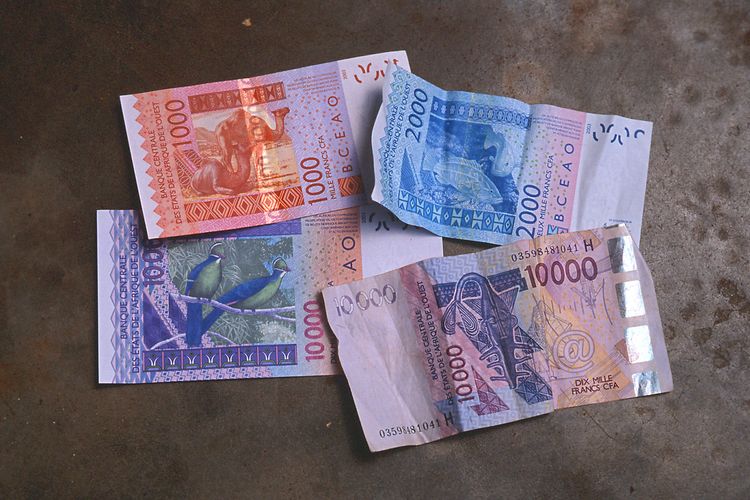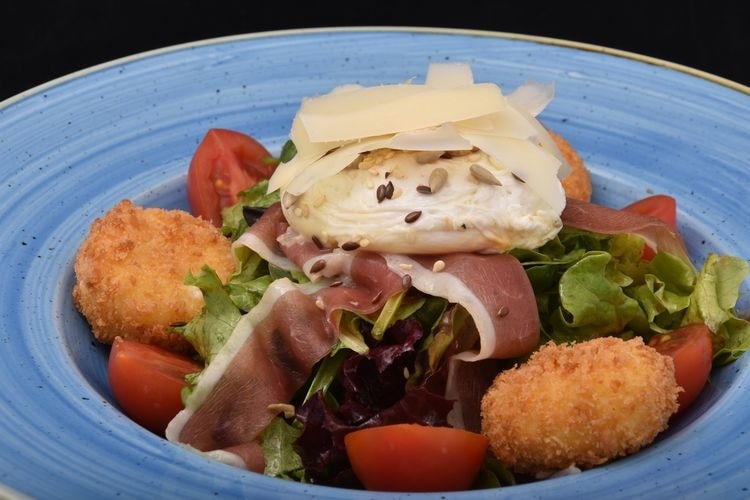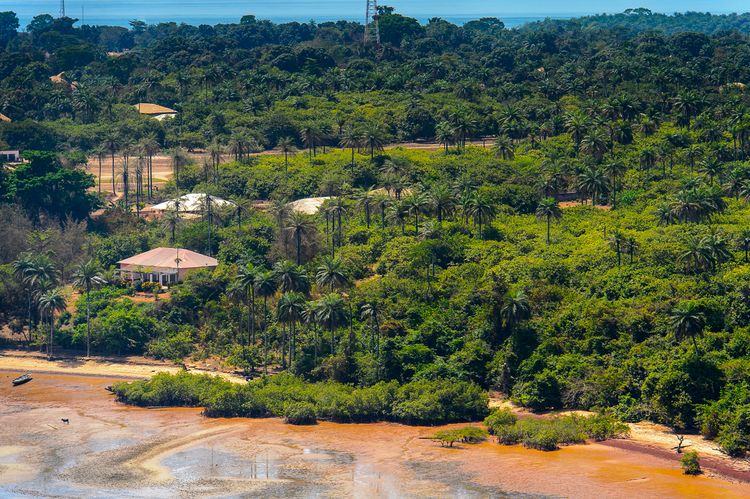Guinea-Bissau Travel Tips and Information
Official Name
Republic of Guinea-Bissau
Capital
Bissau
Population
Country Code
Around 2.2 million
GW
Country Code (international calls)
+245
The flight time to Guinea-Bissau is approximately ---- hours. Check the climate, currency, religion, manners, other information of Guinea-Bissau below. Wishing you pleasant travels to Guinea-Bissau.
Guinea-Bissau is a West African country bordered by Senegal and Guinea and opens westward to the Atlantic Ocean.
Local Climate / Weather
Guinea-Bissau experiences a tropical climate marked by a wet and dry season, with warm temperatures throughout the year. This makes it ideal for travelers looking to explore its natural beauty, vibrant culture, and diverse wildlife. The climate varies little across seasons, with temperatures typically ranging from 25°C to 30°C, though coastal breezes make the warmth more bearable, especially near the Atlantic coast. Dry Season (November to May): This is the best time to visit Guinea-Bissau, particularly between December and February when rainfall is minimal, and the skies are clear. The dry season offers optimal conditions for beach visits, sightseeing, and exploring the country's national parks. Travelers can enjoy lower humidity and fewer mosquito-related issues, making this the most popular time for tourists. Wet Season (June to October): Guinea-Bissau’s wet season is characterized by heavy rainfall and high humidity. Although some might find it challenging due to intense tropical downpours, the landscape transforms into lush greenery, enhancing the experience for nature lovers. However, travel plans may be affected by rains, especially from July to September, when showers are most frequent. Guinea-Bissau hosts vibrant festivals that showcase its rich cultural heritage: Carnival (February/March): Celebrated with colorful costumes, music, and parades, Guinea-Bissau’s Carnival is a fusion of African and Portuguese traditions. It’s a highlight for visitors, offering a unique glimpse into the country's cultural identity. Independence Day (September 24): This national holiday commemorates Guinea-Bissau’s independence from Portugal. Festivities include parades, traditional dances, and public gatherings, providing a great way for travelers to engage with locals and experience national pride. Tabaski and Ramadan: Observed by the Muslim community, these religious events feature communal prayers, feasting, and cultural traditions. During Tabaski, families gather for celebrations, and traditional dishes are prepared, allowing visitors a chance to experience local customs up close. This climate and event guide helps travelers plan an enjoyable visit to Guinea-Bissau, keeping in mind seasonal advice and the chance to witness captivating local festivities.
Currency & Tipping
Currency
When visiting Guinea-Bissau, travelers will find that the official currency is the West African CFA franc (XOF), shared by several West African countries. It’s recommended to carry cash, as ATMs may be limited, especially outside major cities like Bissau. Exchange services are generally available at banks and exchange bureaus. Credit cards are not widely accepted, so it’s best to have local currency for most transactions.
Tipping
In terms of tipping, it’s not obligatory but appreciated for good service. In restaurants, a 5-10% tip is common if no service charge is included in the bill. For hotel staff and tour guides, a small tip is a considerate gesture for quality service. This currency and tipping guide aims to make travelers’ experience in Guinea-Bissau smooth and enjoyable.
Useful Travel Information

Voltage & Electrical Outlets
In Guinea-Bissau, the standard voltage is 220V with a frequency of 50 Hz. The power outlets commonly use Type C and Type F plugs, which are two-round-pin sockets. Travelers should bring a universal adapter if their devices use different plug types, ensuring they can easily charge electronics and maintain connectivity throughout their trip.

Internet Connectivity
Internet access in Guinea-Bissau is developing but generally accessible in larger towns and cities. Mobile data is a popular choice for staying connected, with local carriers offering options for short-term travelers. The main telecom providers include MTN Guinea-Bissau and Orange, both of which offer prepaid SIM cards with data packages. To ensure uninterrupted internet access, consider purchasing a SIM card upon arrival; it’s an affordable and effective way to stay connected with friends, family, and travel resources.
Water for Consumption (Drinking Water)
Access to clean drinking water can be limited in some parts of Guinea-Bissau, so it is advisable to take precautions. Bottled water is recommended and widely available in shops and hotels. Avoid tap water for drinking, and if bottled water is not accessible, ensure water is thoroughly boiled or filtered before consumption. Many travelers also find it useful to carry portable water purifiers or sterilization tablets for added safety when venturing into rural areas.
Culture, Religion & Social Etiquette
Culture
Guinea-Bissau, a culturally rich nation in West Africa, showcases diverse traditions influenced by its ethnic groups, including the Balanta, Fula, Manjaco, and Mandinka communities. Each group has unique customs, from music and dance to colorful festivals. Music, primarily using traditional instruments like drums and koras, is deeply woven into daily life and celebrations, reflecting the nation’s vibrant spirit. Traditional dances are common in festivities, often held to mark harvests, marriages, and other communal gatherings. People visiting Guinea-Bissau will appreciate the locals' hospitality and emphasis on community life.
Religion
In Guinea-Bissau, Islam is the predominant religion, with a significant Christian minority, particularly Roman Catholics, and followers of indigenous beliefs. The harmonious coexistence of different faiths is noteworthy; religious tolerance is a core part of the nation’s identity. Visitors, whether Christian or Muslim, will find a welcoming environment where religious freedom is respected, and traditional religious practices are cherished.
Social Etiquette
Understanding manners in Guinea-Bissau is essential for travelers. The locals value respect, humility, and politeness, especially when interacting with elders. It’s customary to greet with a handshake, often accompanied by a warm smile and eye contact. Modesty in dress is appreciated, particularly in rural areas, and it’s polite to dress conservatively when visiting religious sites. In social settings, showing genuine interest in local customs and accepting invitations to share meals or participate in community activities are gestures of goodwill that locals appreciate.
Food Culture
Guinea-Bissau offers a distinctive and flavorful culinary experience that reflects its rich cultural heritage and coastal geography. For travelers curious about new tastes, the cuisine of Guinea-Bissau combines influences from West Africa, Portugal, and the country’s local traditions. Dishes commonly feature rice, cassava, and fresh seafood like fish and shrimp, while spices and herbs add an aromatic depth to meals. Staple ingredients such as palm oil, coconut, and peanuts are widely used, creating a unique flavor profile that is both earthy and slightly nutty. One dish to try is "Jollof rice," a vibrant and spicy rice meal popular across West Africa, which often includes tomatoes, onions, and local spices that give it a bold flavor. Street food in Guinea-Bissau is a vibrant part of local life, offering visitors quick and affordable ways to sample authentic flavors. Travelers can find skewers of grilled meat, known as "Espetada," and fried plantains, which provide a crispy, satisfying bite. For a sweet snack, look for vendors selling "kanyah," a peanut-based treat that is a favorite among locals. These street foods are typically served fresh and make for a delightful culinary adventure for those exploring the bustling marketplaces. In Bissau, the capital city, several local restaurants are recommended for those looking to experience Guinea-Bissau’s cuisine in a comfortable setting. Restaurants such as Coqueiros and Oporto Restaurante serve traditional dishes along with Portuguese-inspired flavors, providing an excellent introduction to the local fare. Dining in these establishments not only gives travelers a taste of Guinea-Bissau’s unique cuisine but also allows them to enjoy the warm and welcoming hospitality of the people. With its array of flavors and influences, Guinea-Bissau's food culture promises an unforgettable experience for travelers eager to explore the world through their taste buds.
Major Tourist Attractions & UNESCO World Heritage Sites
Major Tourist Attractions
1. Cacheu Colonial City One of the oldest towns in Guinea-Bissau, Cacheu was a significant site during the colonial era and remains steeped in history. Travelers can visit the Cacheu Fort, which houses a museum dedicated to the slave trade and colonial history. Walking tours around the old town and riverside promenades make Cacheu a captivating spot for history enthusiasts. 2. Bolama Island Once the capital of Portuguese Guinea, Bolama Island features decayed colonial architecture that tells stories of the country's colonial past. Travelers can enjoy guided tours of old government buildings, explore quiet streets, and relax by the waterfront. The island’s tranquil vibe is perfect for travelers interested in both history and natural beauty. 3. Geba River Estuary Known for its unique landscapes and abundant bird species, the Geba River Estuary is a popular spot for nature lovers and birdwatchers. Visitors can enjoy boat trips and guided excursions to view migratory birds and other estuary wildlife. The estuary’s scenic beauty offers an excellent backdrop for photography. These destinations and heritage sites in Guinea-Bissau provide travelers with rich cultural immersion, adventure, and relaxation. With opportunities to engage in activities like island hopping, wildlife viewing, and historical tours, Guinea-Bissau promises an unforgettable travel experience that caters to diverse interests.
UNESCO World Heritage Sites
1. Bijagos Archipelago A UNESCO Biosphere Reserve, the Bijagos Archipelago is a group of over 80 islands with unspoiled beaches, lush vegetation, and diverse wildlife. Travelers can explore islands like Orango, known for its saltwater hippos, and Rubane for its peaceful beaches. The archipelago is ideal for eco-tourism activities, including birdwatching, wildlife photography, and cultural encounters with indigenous Bijagos communities. 2. Cantanhez National Park Located in southern Guinea-Bissau, Cantanhez National Park is renowned for its dense forests and is a sanctuary for chimpanzees, manatees, and numerous bird species. Eco-tourists will appreciate jungle treks, wildlife safaris, and canoe rides through mangrove channels. It’s a prime destination for wildlife spotting, especially for those interested in conservation efforts.
Travel FAQs
Is Guinea-Bissau safe to visit? What should travelers be mindful of?
Since independence, security in Guinea-Bissau has been somewhat unstable. Certain areas in the northwest are classified by the Ministry of Foreign Affairs as no-travel zones, and even other areas require caution.
Do people speak English in Guinea-Bissau?
Portuguese is the official language of Guinea-Bissau, and English is not widely spoken in everyday settings.
When is the best time to visit Guinea-Bissau?
The ideal travel season for Guinea-Bissau is the dry season, from December to May. Outside of these months, the rainy season brings unpredictable weather. Even in the dry season, be aware of occasional hot winds.
What are the major cities in Guinea-Bissau?
Key cities include the Atlantic-facing capital, Bissau, from which the country gets its name, and Gabu, the second-largest city, located in the east.
Which airport is the most popular for flights to Guinea-Bissau?
The most popular airport is “Osvaldo Vieira International Airport,” situated in the capital, Bissau.




